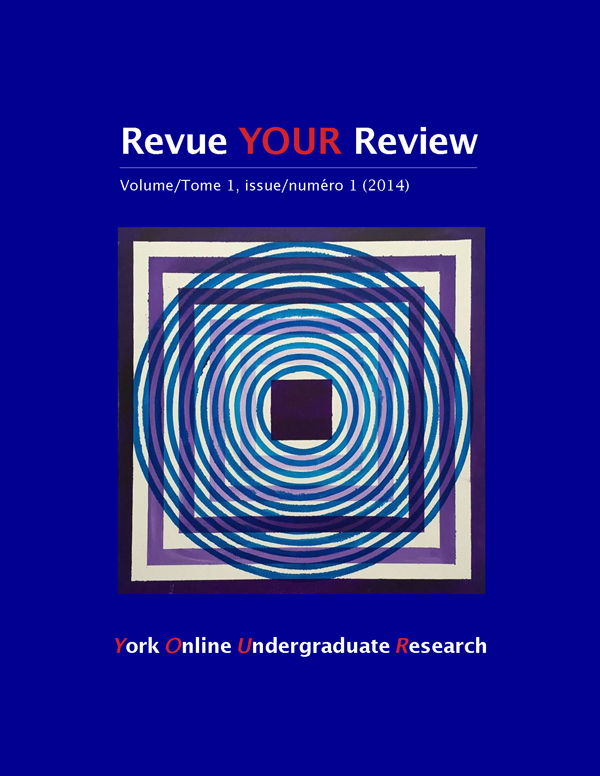Long Road to Freedom: An Investigation Into the Sexual and Gender Discrimination of Sexual Orientation and Gender Identity (SOGI) Minority Asylum Seekers in Seeking Refugee Status in Canada (abstract)
Abstract
This study investigates the sexual and gender discrimination experienced by sexual orientation and gender identity (SOGI) asylum seekers in claiming refugee status in Canada. The author conducts a literature review of critiques of the refugee determination process in Canada, and reviews reports from service providers helping SOGI asylum seekers in Toronto. Historically, Canada has demonstrated an understanding that is ahead of the curve for LGBTQI refugees; however, much has changed under the current Conservative Government, led by Prime Minister Stephen Harper. Changes to the refugee determination system through the passing of Bill C-31 (2012) have made the situation for SOGI refugees particularly precarious. The designation of so-called “safe” countries of origin, as outlined in Bill C-31, shortens the time allotted to submit an application for asylum, making it more difficult to gather and prepare the documentation required for a successful case. The author pays particular attention to South Africa, as it is considered to be Africa’s gay haven. As a gender-queer person of colour pursuing hir Bachelor of Social Work at York University, the author describes the unique needs of lesbian, gay, bisexual, trans, queer, and intersexed (LGBTQI) refugee claimants. This study demonstrates the need for efficient and effective social services to meet the needs of SOGI claimants, needs that will surely increase due to changes to Canada’s Immigration and Refugee Act incurred with the passing of Bill C-31.Downloads
How to Cite
Issue
Section
License
Authors contributing to Revue YOUR Review agree to release their articles under one of three Creative Commons licenses: Creative Commons Attribution 4.0 International; Creative Commons Attribution-NonCommercial 4.0 International; or Creative Commons Attribution-NoDerivatives 4.0 International. All editorial content, posters, and abstracts on this site are licensed under Creative Commons Attribution-NoDerivatives 4.0 International. For further information about each license, see:
https://creativecommons.org/licenses/
In all cases, authors retain copyright of their work and grant the e-journal right of first publication. Authors are able to enter into other contractual arrangements for the non-exclusive distribution of the e-journal's published version of the article (e.g., post it to an institutional repository or publish it in a book or in another journal), with an acknowledgement of its initial publication in this e-journal.


